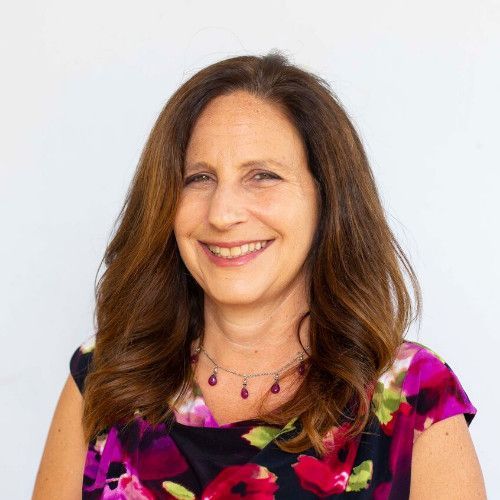LDI News
Take the Time to Figure it Out

LIWP Leader Spotlight
Kimberly Balsam, PhD
Professor of Psychology, Director of the LGBTQ Area of Emphasis, and Director of the Center for LGBTQ Evidence-Based Applied Research (CLEAR), Palo Alto University
What was your biggest takeaway from LIWP?
My biggest takeaway really is the assessment of my own leadership strengths and areas of growth, to really honestly what I bring to the table as a leader and what are my growing edges. I think that was a big takeaway. And just the idea of having leadership goals, which you could intentionally set to lead better. We often see men with privileged identities and power, and it seems like they are “our leader” or you just “do it” and thinking about it more developmentally. So, my strengths and areas of growth and how I could set goals to become a better leader, are my takeaways.
How did you apply your LIWP learning to your life and career?
While I went through LIWP, I was the Division 44 president (between 2016 and 2017), so it was a very tumultuous time politically, and especially with respect to the LGBTQ+ communities. I think that LIWP and my presidency dovetailed nicely and, in some ways, I directly brought some of the skills and ideas that I learned in LIWP to the division and intentionally began thinking about how I was leading.
One of my strengths is leading in a socially collaborative and connected way. I intentionally worked with constituents in building relationships, as opposed to just saying, “This is how it’s going to be, and I spent a lot of my presidential year meeting with and developing relationships with a lot of people. And I was able to accomplish a lot of initiatives during my presidential year. People told me at the beginning, “You’re dipping way too ambitious,” because I tend to think big, but through those collaborations I was able to take charge and do a lot of innovative things. Another big thing: the following presidential years, I was the chair of the Promotion and Tenure Committee at my university and again I intentionally went in with some leadership goals. My performance got noticed. I was then tapped for a new role as a stipend department chair, and since 2018 it has really served as a foundation for leading. I think a lot of the stuff we learned back in LIWP about budgeting and managing people in the workplace didn’t really apply as a division president, because it was a volunteer organization, I’ve now gone back to some of those teachings and applied them to being a department chair for the last three years.
What’s the best advice you’ve ever received?
One of the foundations for my professional life was advice I got from my dissertation advisor, Dr. Esther Rothblum. She was a pioneer in LGBTQ+ studies and was one of the first clinical psychology professors to do work with LGBTQ+ populations. She advised me to aim high and just keep being persistent—this was mostly with respect to publishing. She would say, “Many times, women and other marginalized people take negative feedback really personally. For example, when an article gets rejected by a journal, they immediately assume they are flawed and have written a bad article.” Rather, we should take any kind of bumps in the road, any kind of rejection, as some feedback about how we can improve and continue being persistent and keep aiming high. I try to transmit that to my students. That as you go higher, you will experience disappointments. For example, sometimes people don’t like what I’m doing as department chair or as division president, but I can’t let negative feedback or the fear of negative feedback stop me from aiming high. Therefore, that was very foundational for me.
Another example is the main article that came out of my dissertation and was published in the Journal of Consulting and Clinical Psychology as the second LGBTQ+ article they ever published. We had to revise it four times they really wanted to reject it. I believe that without the guidance of. Dr. Rothblum, I would have just given up. Yet still to this day, it is my most widely cited article.
It’s really important talk about our failures and our vulnerabilities as we’re mentoring other people, especially if you add on minority identities. I identify as both woman and nonbinary and in my lab I work with majority LGBTQ+ students, many of whom are first-generation, because there is research that shows LGBTQ+ people are often the first person in their family or more likely to go to college than heterosexual people. I finally put together that that is probably why I seem to have a disproportionate number of first-generation college students. I also work with a lot of students of color and so there are many marginalized identities and this idea that you have to be perfect and get everything right or you’re going to be totally thrown off track creates a lot of paralysis for people. So, I do try to role model that you can fall down and pick yourself up and that doesn’t make you less strong or mean that you’re an imposter and you don’t belong absolutely.
What advice would you give to other women who are midcareer leaders in psychology?
I am really approaching the end of midcareer and my career path is a little unconventional because I worked for five years with my master’s degree and then went back for my PhD. Therefore, I felt like I was midcareer even when I technically was not 10 years post PhD since I had done five years of clinical work. The advice I would give is to take time to figure it out. With my career, I felt there was a fork in the road where I could have kept doing the things I was good at, or I could try to elevate to the next level and pursue more leadership positions. There are pros and cons, and at midcareer you should think about what direction you want to go, whether it’s being a professor, a clinician, a consultant, or whichever role you’re playing.
Now that you have this much professional experience, you may have something to give back in terms of leadership, and that would be another piece of advice for midcareer women. Keep on mentoring—and even though it’s harder to find mentoring when you’re at this stage because there are not as many people that have experience above you—continue to actively seek it out wherever you can get it. Sometimes it’s just a few tidbits of wisdom here and there.
I really believe in lifelong mentoring and there’s no way I would have been able to accomplish the things I have in the last few years without mentoring from people who have more experience. Sometimes it’s just informal friends who were a department chair or associate dean, and sometimes it’s formally setting up meetings with people.
What can you share with your LIWP alumna sisters about what you learned about yourself as a leader in the process?
One thing that we have been talking about in the Advisory Committee is thinking about leadership of marginalized people as a social justice tool and asking questions like, “Why are we doing leadership training?” We have been discussing whether we are just training women and even trying to define what women are. Are we just trying to get people into power in male-dominated structures? Or are we trying to promote social justice and transform the system?
I’ve learned that leadership is important because it’s in the service of social justice, of making our profession more inclusive and more equitable, and of elevating the voices of marginalized groups—and making our society do the same. I don’t want to be a leader just to have power; I want to be in positions of power so that I can help further those causes from a higher vantage point and with more tools at my disposal.
Any other advice for your LIWP sisters?
This year, visibility matters and if you are at all inclined to go into leadership, I would encourage you to do it—especially people who have more marginalized identities, whether it’s being a person of color, an immigrant, part of the LGBTQ+ community, or a first-generation college student with a disability. When I became a department chair, I wasn’t thinking, “Oh, I’m an LGBTQ+ department chair,” but other people—students and early career professionals—would comment they had never seen an LGBTQ+ person who’s in a position of power.
It makes a difference and you’re paving the way for the people after you. Build a network, get mentoring, and offer mentoring too.
From LeadHERship, Vol. 5 (2021)
